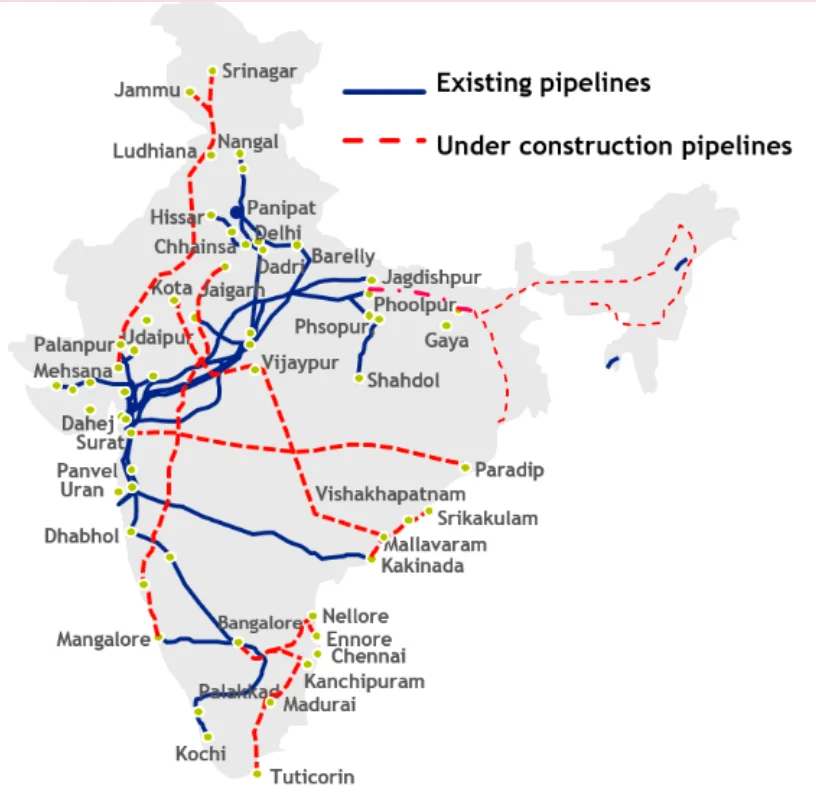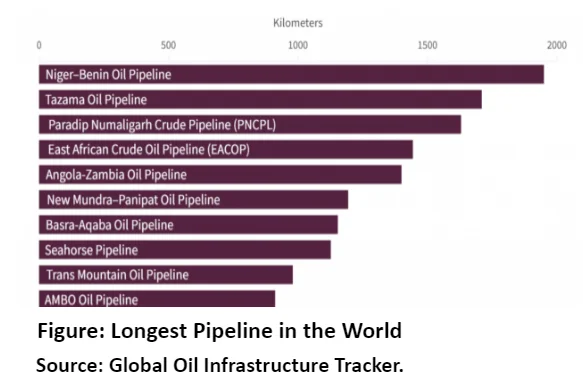![]() June 24, 2024
June 24, 2024
![]() 17142
17142
![]() 0
0
Pipelines in India are vital for transporting oil, gas, and petroleum products safely and affordably. Their extensive network ensures a steady supply chain across the nation, from production sites to refineries and industrial hubs. This mode of transportation, once primarily for water, now facilitates the movement of crucial resources, enabling inland development and reducing logistical challenges.
 Government’s 2002 Policy Shift: In November 2002, the government made a significant decision to deregulate the oil sector and encourage investment in petroleum product pipelines.
Government’s 2002 Policy Shift: In November 2002, the government made a significant decision to deregulate the oil sector and encourage investment in petroleum product pipelines.

| Gas Authority of India Ltd. (GAIL) was set up in 1984 as a public sector undertaking to transport, process and market natural gas for its economic use.
Oil India Limited (OIL), under the administrative set-up of the Ministry of Petroleum and Natural Gas, is engaged in the exploration, production and transportation of crude oil and natural gas. It was incorporated in 1959 as a company. |
| Must Read | |
| Current Affairs | Editorial Analysis |
| Upsc Notes | Upsc Blogs |
| NCERT Notes | Free Main Answer Writing |
Conclusion
| Related Articles | |
| ECONOMIC DEVELOPMENT | The Ganga River System: Exploring India’s Waterways |
| Industrialization in India | Energy Transition |
<div class="new-fform">
</div>
Latest Comments